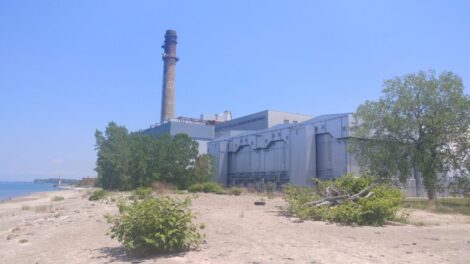Appeals Court dismisses Borrello lawsuit
The Fourth Department Appellate Division Court of Appeals is allowing new state isolation and quarantine rules to proceed.
The court ruled Friday that state Sen. George Borrello, R-Sunset Bay, and his fellow plaintiffs had no standing to sue Gov. Kathy Hochul and the state Health Department. The decision reverses the July decision by Judge Ronald Ploetz in state Supreme Court in Cattaraugus County invalidating the state’s proposed isolation and quarantine rule changes.
“We are deeply disappointed in the Appellate Division’s ruling in favor of the Hochul administration in the case of Borrello, Lawler, Tague, Uniting NYS v. Hochul,” Borrello and his fellow plaintiffs said in a news release. “The court did not address the merits of the case which were outlined by Judge Ploetz in his original decision. Instead, they shamefully reversed and dismissed the case on a technicality, claiming that we, the petitioners, somehow lacked standing to bring the case in the first place. We strongly disagree with their ruling and are concerned about the widespread implications of this erroneous decision. They have not only paved the way for Hochul and her Department of Health to re-issue this heinous rule, but they have set a precedent to preclude citizens from rightfully challenging government overreach in court, and they’ve effectively unconstitutionally empowered the Executive Branch to overreach into policymaking, which is a decision that could open the door to further abuses of power.”
At the outset of the COVID-19 pandemic, Gov. Andrew Cuomo’s disaster declaration allowed the state Health Department to develop and then readopt heightened isolation and quarantine procedures to control the spread of COVID-19. Those procedures included 10 NYCRR 2.13, which the state Health Department wanted to implement permanently after the state’s disaster declaration expired. Legislation to implement similar procedures was stricken by the state Legislature, and the state Health Department then moved to begin administrative rulemaking to implement the rules.
Borrello, two fellow lawmakers and an advocacy organization sought to have the isolation and quarantine rules declared invalid by the courts as an impermissible usurpation of the state Legislature’s legislative authority in violation of the state Constitution. The state Attorney General’s office argued Borrello and his fellow plaintiffs didn’t have standing to sue. Ploetz ruled in favor of Borrello without addressing the standing to sue issues raised by the state. The legislature’s decision not to vote on legislation that would have implemented heightened isolation and quarantine rules meant, in the Appellate Division’s view, the legislature never actually spoke on the matter. .
“‘When there is no vote nullification and a legislator otherwise “suffer(s) no direct, personal injury beyond an abstract institutional harm,’ the legislator lacks standing,” the Appellate Division wrote in its opinion, citing several cases. “In the case before us, ‘(no) vote nullification (is) alleged” inasmuch as the legislator petitioners have expressly disclaimed any reliance on that category of legislator standing, and thus only the usurpation category is at issue. With respect to that category, we conclude that the legislator petitioners failed to fulfill the injury-in-fact requirement to establish standing inasmuch as we discern no allegation of “a direct and personal injury” that “represents a concrete and particularized harm.”
The judges also held that the lawmakers can’t create standing to sue by claiming to act on behalf of their constituents. The fact that Borrello and his fellow lawmakers were deemed not to have standing doesn’t mean the state acted appropriately. Because the court ruled on a technical issue, the justices did not discuss the merits of Borrello’s claim and, in fact, said there are other groups that would have standing who can file their own challenge to the expanded isolation and quarantine rules. Or, the court wrote, the legislature could take its own action.
“However, inasmuch as the legislature retains its power to address the regulation and there exists a large pool of potential challengers to the regulation who could assert a concrete and particularized harm, we conclude that ‘this is not a case where to deny standing to these (petitioners) would insulate government action from judicial scrutiny.'”




